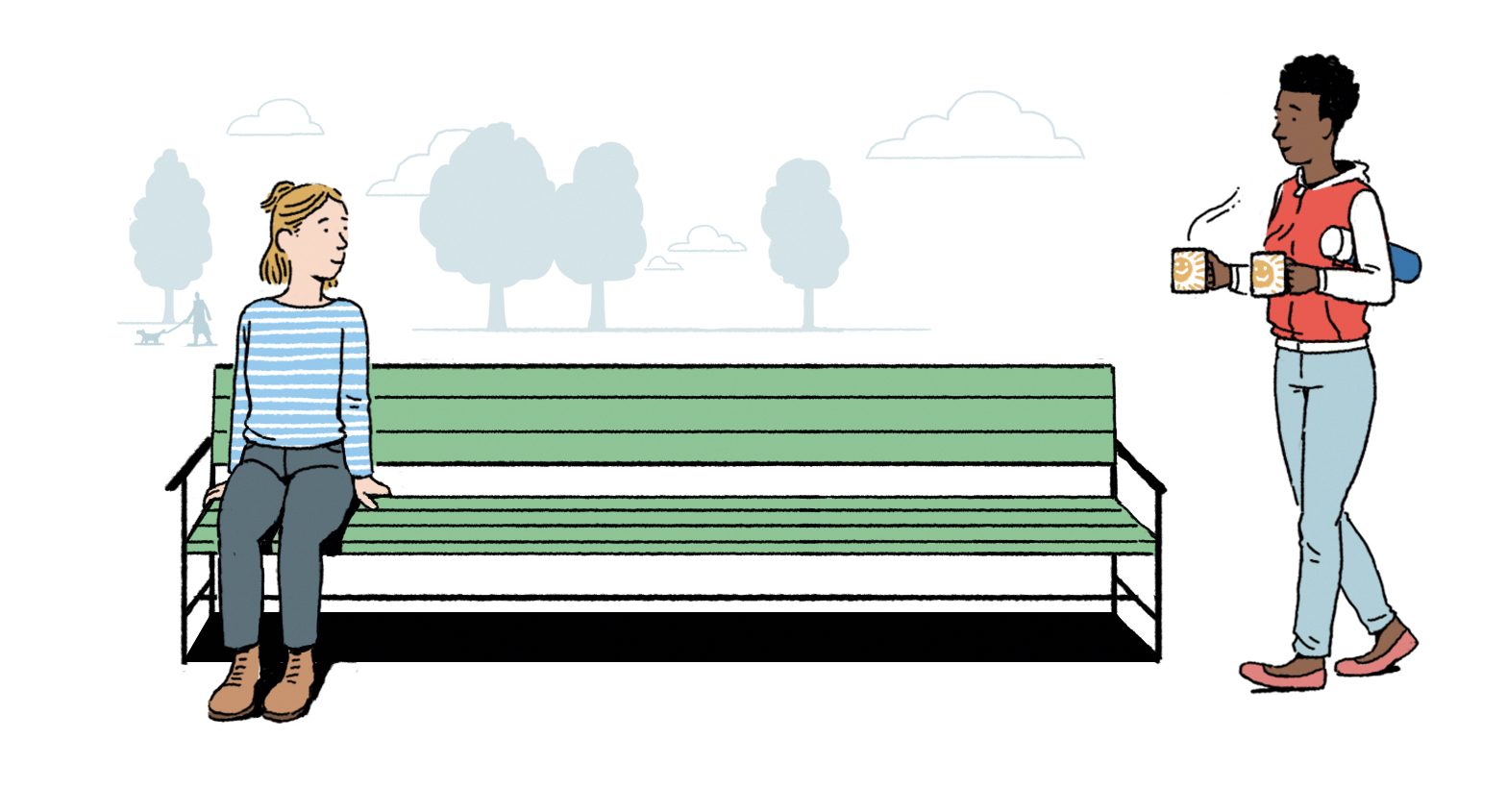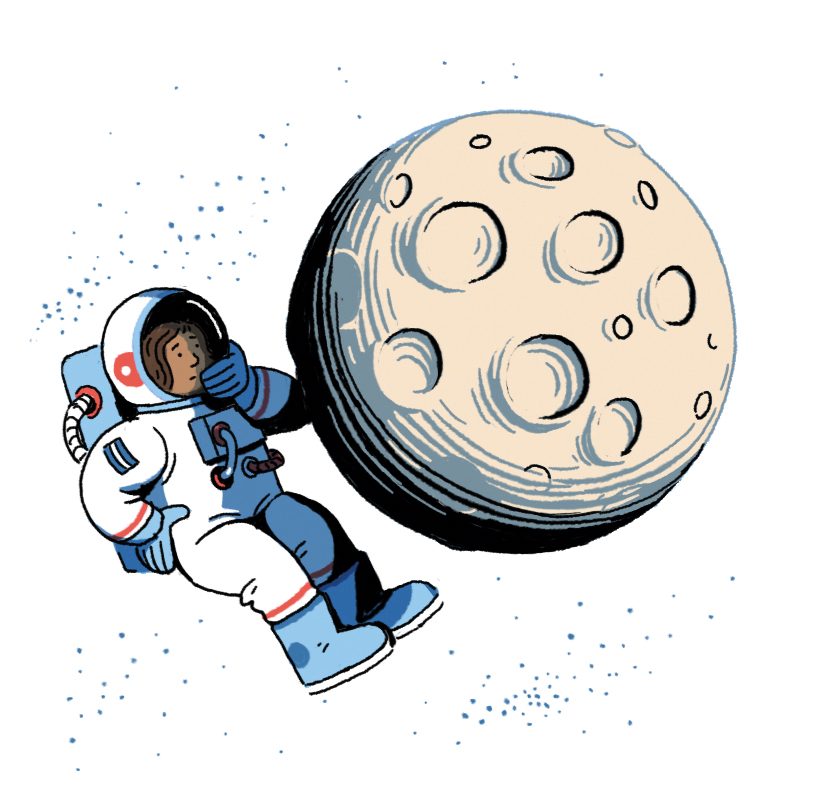Inbox 90
Editor’s Letter
Welcome to the Easter Term edition of CAM – and to a magazine made in lockdown. But while the CAM team wrestled with socially distanced photography, researchers and experts from across the University were working to support the local, national and international fight against Covid-19.
What have you been doing in lockdown? In 17th-century Paris, the rich and fashionable kept themselves occupied by taking drugs – including ones that may seem rather familiar. Dr Emma Spary traces the lines of empire and the thrill of the new.
Elsewhere, Professor Neil Lawrence explains why the next phase of artificial intelligence should involve going back to basics. And we celebrate Fitzbillies – a uniquely Cambridge institution which this year marks its 100th anniversary. If ever there was an excuse for a Chelsea bun, this surely must be it.
As we emerge – to some extent – blinking into the light, there is change afoot. In CAM 88 we reported on how staff and students are working to decolonise the curriculum. In response to the Black Lives Matter campaign, many of you have asked about the University’s approach to antiracism. You can read the alumni briefing in Download.
On these topics – along with all other things Cambridge related – we look forward to your contribution to the debate by post, email or on social media.
Mira Katbamna (Caius 1995)
Inbox
Reasons to feel hopeful
Pedantic nitpicking, I know (but what else is a Cambridge education for?): your contributor may be right that Malcolm X said Plymouth Rock landed on him, but Cole Porter had the idea first, in Anything Goes.
(There’s always something in CAM to start a conversation!)
Patrick Wallace (King’s 1967)
In my spare time I help to run the Christian Campaign for Nuclear Disarmament. We believe that it is a lack of hope that leads to people settling for the uneasy status quo of ‘nuclear deterrence’. Christians, and other people of hope, should demand better: a world where there is a clear and urgent path to the total abolition of such abominations.
Martin Tiller (Sidney Sussex 1986)
I studied the graphs. The vertical scales aren’t shown, and the zeros are clearly some way above the bottom of the coloured areas. But in dark times I still live in hope – that one day statistics will be properly presented.
John Hartley (Corpus 1975)
I agree with you on the importance of hope in this uncertain time of climate emergency. In the UK, we already have the technology to become carbon neutral within 10 years. What is missing is the political willpower to implement it.
The British government has shown how rapidly it can respond to the Covid-19 emergency, so why [not the] climate emergency? Could it be because supplementing big fossil fuel companies, cutting down ancient woodland for HS2 and allowing developers to build houses way below the carbon-emission standard is in the interests of capitalism and the elite?
My hope is that the government will wake up to the fact that we are all in this together and realise that they need to act now.
Elaine Carter (Newnham 1972)
A timely reminder to be hopeful in CAM 89 – complete with some fantastic Gapminder graphics!
Kate Stockings (Homerton 2014)
Great quote in CAM: “So what if things get worse? Do I then give in to despair? No, because even if things get worse, they can’t close down the possibility of change.”
Krista Carson (Homerton 2013)
Those of us who think about long-term change do see reason to hope for reset in so many areas: “Hope is the thing with feathers”.
Rachael Unsworth (Selwyn 1977)

All the lonely people
When we set up the Campaign to End Loneliness a decade ago, we wanted to call attention to the profound blight on life so many of us experience.
It’s a terrible, tragic irony that the murder of one of the University’s most celebrated alumnae, Jo Cox [Pembroke 1992], who felt acutely lonely as an undergraduate, prompted so much awareness and action to find ways we can overcome those feelings.
It’s so good to see CAM, and Cambridge, getting to grips with understanding this ‘lonely city’ that we all inhabit at some point, whatever our age.
Paul Cann (King’s 1972)
How to be modern
I’m afraid I have bad news for David Orton, who writes that “if Cambridge [won’t provide] an education in… western civilisation, I shall be suggesting to my grandchildren that they apply elsewhere – perhaps Durham?”
He may be interested to know that at Durham we are revising our curricula to make sure that they are not wholly British-/European-/western-centric, and that the important and fascinating cultures, pasts and presents of places across the world are represented and explored.
Hopefully this is precisely the kind of thing that his grandchildren would enjoy studying, whether at Durham or Cambridge or elsewhere.
Helen Foxhall Forbes, Associate Professor of Early Medieval History, Durham University (Trinity 2001)
Superpower
An excellent article (inter pares) in CAM 89, but it repeats the mantra “storing hydrogen is expensive and complex”. Until the 1960s, most homes and many industries were powered by ‘town gas’ – 50 per cent hydrogen. Storage, distribution and metering were never considered problematic, and most of the system was reused as natural fossil gas (mostly methane) replaced it. The delightful cartoons depicted transport, but two-thirds of UK energy consumption is static, and, while planes, cars and trucks might present a problem, ships and trains could in the long term run on liquid hydrogen.
Alan Calverd (Peterhouse 1963)

Whilst it may be sensible to utilise surplus (renewable) electricity to split water to make hydrogen for use in fuel cells on Earth, on the moon this becomes much more problematic.
Although there is ample sunlight even on the far side of the moon, the engineering problems should not be overlooked. The variation in temperature between the illuminated hemisphere of the moon and that in shadow is around 350°C, making metal fragile and joints hard to seal.
Maintaining temperatures below the critical temperature of hydrogen is problematic. Of course, everything can be built in controlled lunar environments, but this is no easy task either. So while one day we may well go to the moon and build a hydrogen economy, I would suggest this is many decades away. A hydrogen economy here on Earth is going to be difficult enough to achieve.
Peter Baker (Magdalene 1964)
Praise
Congratulations on the fantastic new digital edition of CAM! It was great to get a sneak peek at the latest issue a few days ahead of the print copy landing on my doormat. Each issue seems to contain just the right combination of articles that make me think “Oh, that’s interesting!” and ones that make me think “I don’t even know if that’s a real word!”
But that’s the beauty of CAM – I come away from each issue knowing a little more about the world.
Craig Nunn (Homerton 2007)
Just wanted to say that I thought the latest issue was great. Especially liked the hopefulness article, but also gender, loneliness, certainty and Egypt – all brilliant.
Michael Mann (Christ’s 2001)
Just now I was sitting on my patio in the evening sun, reading CAM, sipping a G&T and listening to the ewes and lambs in the adjacent field blaaring away while they sorted out their lives. When I decided it was time to go in to cook my supper, I smacked my hand on the table and said out loud: “That was a bloody good read!”
And it really was – I read every article from beginning to end, and I particularly enjoyed the graphics.
Julian Gray (Clare 1960)
Write to us
We are always delighted to receive your emails, letters, tweets and facebook posts.
- By email
- cameditor@alumni.cam.ac.uk
- By writing
- CAM, 1 Quayside, Bridge Street, Cambridge, CB5 8AB
- By Twitter
- @Cambridge_Uni
- By Facebook
- facebook.com/cambridgealumni
Please mark your letter ‘For publication’. Letters may be edited for length.



